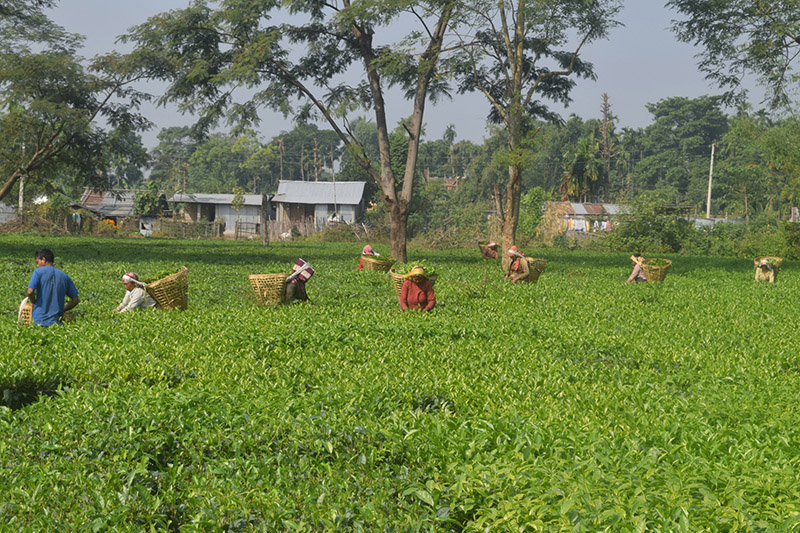Collective trademark for Nepali orthodox tea
Kathmandu, January 11
The government has introduced a collective trademark for Nepali orthodox tea — Nepal Tea — in a bid to explore and enhance the market for Nepali tea in the international market.
The Ministry of Agricultural Development (MoAD) has recently endorsed the Nepal Orthodox Tea Certification Trademark Implementation Directive, which has envisioned such collective trademark for domestically produced orthodox tea for the first time in history.
The collective trademark ‘Nepal Tea, Quality from the Himalayas’ is believed to increase the credibility of Nepali tea in the global market and assure competitive quality of the product. Basically, the use of collective trademark in tea that is being exported to different countries will guarantee proper production, processing and packaging of Nepali tea in the international market.
As per the newly endorsed directive, Nepal Tea and Coffee Development Board (NTCDB) will issue collective trademark to domestic producers of orthodox tea. However, NTCDB officials said it is not mandatory for tea producers to acquire the collective trademark and only interested producers can apply for the collective trademark at NTCDB.
“We have set a few production and quality parameters for tea producers to get the collective trademark. We will issue such trademark to every producer of tea that meets the set standards,” said Gaurab Luitel, planning officer at NTCDB.
However, Luitel said that tea producers themselves have been demanding such collective trademark since long as such accreditation will increase the credibility and promote their products in the global market.
Among other parameters, domestic orthodox tea should not use any prohibited pesticides and chemical fertilisers to be eligible to get the collective trademark. Also, packaged orthodox tea should have proper labelling of price, quantity, packaging and expiry date, tea grade, among others, to get the trademark, as per Luitel.
According to NTCDB, Nepal basically produces CTC and orthodox tea. Since the latter has higher demand in the foreign market, it has high export potential.
NTCDB statistics show that Nepal produces altogether 24,200 tonnes of tea on an average every year, of which 5,800 tonnes is orthodox tea. Similarly, Nepal is exporting tea (basically orthodox) worth almost Rs 2.4 billion every year.
As per government data, tea farming is carried out on more than 27,600 hectares of land across the country.






